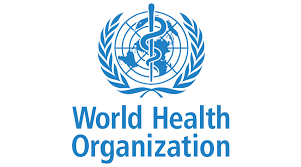
World Health Organization
un-jobs.net

Job Description
<!–
Description
–>
Over 240 million older adults (65 years and above) currently live in the Western Pacific Region (WPR), and this number is expected to double by 2050 due to the acceleration of population ageing in the region. To address this, WHO WPR Member States adopted the Regional Action Plan (RAP) on Healthy Ageing in 2020. The plan takes a multisectoral, lifelong approach that prioritizes equity and utilizes existing assets. Its vision is to have “healthier older adults in the Western Pacific Region thriving and contributing in society.” The RAP has five objectives: enabling social return, supporting healthy ageing, conducting research, monitoring, and evaluation. It emphasizes early preparation for countries with a low percentage of older adults and a multi-sectoral approach for those with a high percentage. The plan provides recommendations for action under each objective.
As we have learned from past outbreaks such as H1N1 influenza, SARS, and MERS, older people are particularly vulnerable to new infectious diseases. COVID-19 has highlighted this vulnerability, as older adults have experienced worse outcomes and higher case fatality rates compared to younger age groups. In Australia, Japan, and the Republic of Korea, the case fatality rate for those over 80 years old is over 4.4%, while it is less than 0.2% for those under 80.
The COVID-19 pandemic has also brought to light the importance of strengthening community-based integrated care and long-term care for older people. Public health and social measures, such as lockdowns and physical distancing, have had long-lasting impacts on the mental health of some older adults, especially those who have difficulty connecting online. Emerging research indicates that social isolation and loneliness have worsened among older people.
As we prepare for the post-COVID-19 pandemic “new normal,” it is crucial that different sectors work together to improve the health and livelihoods of older people. This includes strengthening community-based integrated care and long-term care, which can provide older adults with the necessary support and resources to stay healthy and connected. By prioritizing the health and wellbeing of older adults, we can build more resilient and sustainable communities.
The Healthy Ageing unit (AGE) at WHO-WPR Office seeks support from a consultant to build evidence for community-based integrated care and long-term care policies and programmes that will support Member States in increasing resilience to health emergencies. The selected consultant will closely work with WHO country office focal points and external partners.
Qualifications, experience, skills and languages:
Education:
Essential:
As we have learned from past outbreaks such as H1N1 influenza, SARS, and MERS, older people are particularly vulnerable to new infectious diseases. COVID-19 has highlighted this vulnerability, as older adults have experienced worse outcomes and higher case fatality rates compared to younger age groups. In Australia, Japan, and the Republic of Korea, the case fatality rate for those over 80 years old is over 4.4%, while it is less than 0.2% for those under 80.
The COVID-19 pandemic has also brought to light the importance of strengthening community-based integrated care and long-term care for older people. Public health and social measures, such as lockdowns and physical distancing, have had long-lasting impacts on the mental health of some older adults, especially those who have difficulty connecting online. Emerging research indicates that social isolation and loneliness have worsened among older people.
As we prepare for the post-COVID-19 pandemic “new normal,” it is crucial that different sectors work together to improve the health and livelihoods of older people. This includes strengthening community-based integrated care and long-term care, which can provide older adults with the necessary support and resources to stay healthy and connected. By prioritizing the health and wellbeing of older adults, we can build more resilient and sustainable communities.
The Healthy Ageing unit (AGE) at WHO-WPR Office seeks support from a consultant to build evidence for community-based integrated care and long-term care policies and programmes that will support Member States in increasing resilience to health emergencies. The selected consultant will closely work with WHO country office focal points and external partners.
Qualifications, experience, skills and languages:
Education:
Essential:
- First university degree in public health, medicine, nursing or social sciences
Experience :
Essential:
Essential:
- At least 5 years of work experience in public health and/or academic research in long-term care policy including quantitative and/or qualitative data analysis
Technical Skills and Knowledge:
- Outstanding ability to understand and support population ageing case studies or research
- Data analysis skill – quantitative (essential) and qualitative (desirable)
- Demonstrated project management skills
- Excellent written and verbal communication skills
- Good knowledge of the dynamics of the international public health work
- Ability to plan, design and implement a systematic approach to problem solving
- Ability to provide technical support to countries
- Ability to work harmoniously as a member of the team, adapt to diverse cultural and educational backgrounds and maintain a high standard of personal conduct
Language:
- Expert knowledge of English
<!—
<!–
Recommend your friend
<!–
–>
To help us track our recruitment effort, please indicate in your cover/motivation letter where (un-jobs.net) you saw this internship posting.
Related Jobs
Showing 1 - 4 of 287861 jobs
-

Sales Executive – Food Products
Finlink GroupBurlington, ONBurlington, ON -

Cook- full/part time
KFCLivingston, West LothianLivingston, West Lothian- Contract
-

Housekeeping Attendant – Part Time
Farrington Court Retirement CommunityTacoma, WATacoma, WA- Contract
-

Associate
Royal Bank of CanadaRichmond Hill, ONRichmond Hill, ON- Full Time
